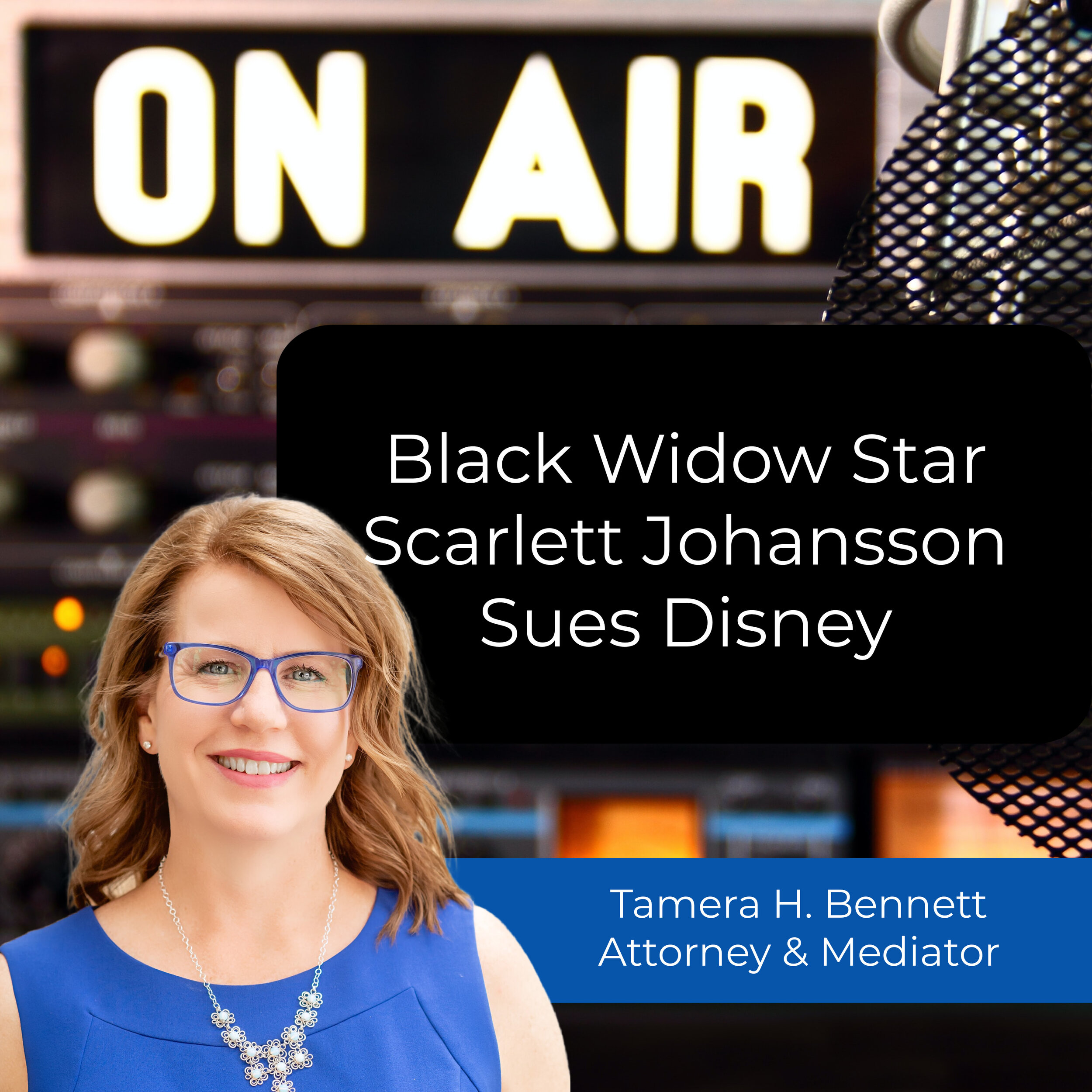Entertainment Attorney Tamera Bennett Discusses Black Widow Lawsuit with Simon Conway
UPDATE:
As of September 30, 2021, Scarlett Johansson and Disney settled a breach of contract lawsuit over the star’s Black Widow contract and compensation. The terms of the settlement were not disclosed.
ORIGINAL POST:
Actress Scarlett Johansson is suing Disney alleging Disney induced Marvel to breach her contract by releasing the superhero film "Black Widow" on its streaming service, Disney+, at the same time the movie opened for a theatrical release. Attorney Tamera Bennett discusses this on the national Simon Conway Show airing throughout Iowa, Orlando, Richmond, Birmingham, Lexington, San Diego, San Antonio, and Minneapolis.
You can listen to the full interview on Spreaker. And a few highlights from the transcript are below.
Has Actress Scarlett Johansson Opened A Can of Worms?
“I think she has opened the can but you know she's just the first one and she's got the brand and the star power that she can push something forward. Because this is happening. We're going to keep having what they call ‘day and date’ releases which is a simultaneous release of a film in the theaters as well as on streaming and video on demand services,” states Texas media and entertainment attorney Tamera Bennett.
And what does [simultaneous release] mean for actresses such as Ms. Johansson? “It may cut into the bottom line of the money for which they plan to be compensated for this film. Because many times their compensation is based on what we call the back end money -- the money that's made off of not just what they got paid at the beginning but based on the theatrical box office numbers. And the numbers may not be there, and probably will not be there, if I can stay at home and watch the Black Widow on Disney+,” states Bennett.
Does Johansson’s Contract Define “Wide Theatrical Release”?
Is it too hard to imagine a lawsuit could hinge upon three words? Media attorney Tamera Bennett believes the definition of “wide theatrical release” is key in determining the winner and loser in Periwinkle Entertainment, Inc. f/s/o Scarlett Johansson v. The Walt Disney Company (Cal. Sup. Ct. LA - 2021).
“I think the whole dispute is going to come down to the definition of three words - wide theatrical release,” says Bennett.
Johansson asserts in the lawsuit, the Black Widow film was to have a window of time as an exclusive theatrical release. Bennett states, “there was not a guarantee that it would be exclusively distributed in the theaters for a window of time. [In the contract,] [i]t was agreed that it would have a wide theatrical release . . . [wide theatrical release is] completely undefined. We can look at history and figure out what those three words actually mean.”
What does the Black Widow Lawsuit and Streaming Mean for the Independent Producer or Talent?
Bennett goes on to say, “independent artists may be completely fine with [day and date] distribution. If you've got a project that's being shown at the Sundance Film Festival — very few of those get picked up and go into major distribution — you may be completely happy with it showing at Sundance and on the same day it can be streamed on whatever video on demand platform you're interested in watching it on.”
“After reviewing multiple news articles out there on this case, the first thing I wrote on my notepad was ‘welcome to the music business.’ Because this is exactly the same process the music business has gone through over the last decade. And now the film industry is catching up. Their model is shifting on how they make money. I actually think the streaming services will consolidate."
Bennett continues, “I think we're going to see all of the streaming services merge down to just a handful. Will the consolidation within the industry drive prices down and quality up? Is it good for the consumer? That's always a question I like to ask in addition to is it good for the talent, is it good for the production company? I want to make sure it is good for the little guy -- the small producers.”
